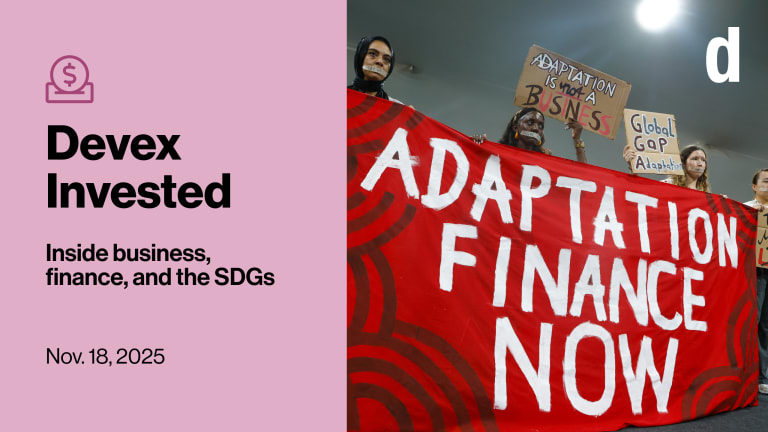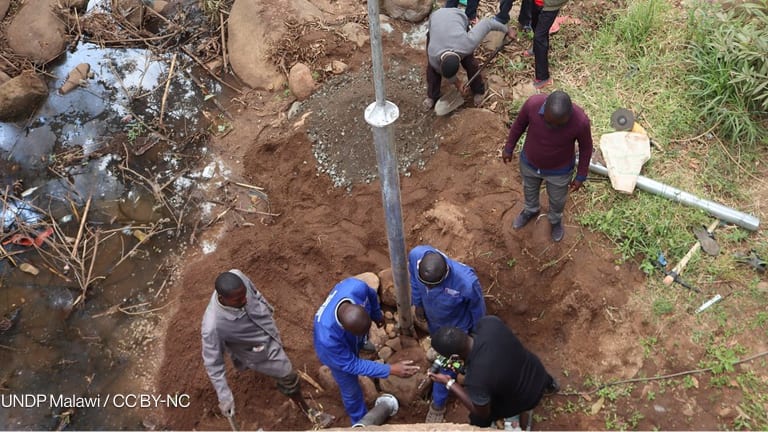
To avoid the worst risks associated with a warming planet — including mass famine — funding is needed for “Urgent adaptation action” to help vulnerable countries deal with climate shocks, a new report has warned.
“Decisive action” within a decade is required to help prepare the African and Asian countries most susceptible to the effects of climate change, which include drought, floods, heat waves, extreme weather, irregular rainfall, and crop failure, according to a paper by the Chatham House think tank that drew on the opinions of 200 experts.
“[Climate change adaptation] action is in the interests of all nations, to prevent cascading food insecurity, migration and conflict across the world.”
— Chatham House’s “What Near-Term Climate Impacts Should Worry Us Most?” reportRuth Townend, one of the authors, did not say how much funding is required and stressed the need for further research on climate risk.
“Even without any kind of moral imperative to act and help finance climate change adaptation in vulnerable countries … it is in rich countries’ interest to take action to help those places become more resilient to climate impact,” Townend told Devex.
But climate finance for adaptation — as opposed to the mitigation of carbon emissions — is severely lagging, and increasing it is a key objective among lower-income countries attending the upcoming United Nations Climate Change Conference.
Ban Ki-moon, former U.N. secretary-general, issued a separate plea at a press conference Monday for high-income nations to step up adaptation financing. “My urging is that they [leaders] should be [spending climate finance] equally — 50-50 — [on] mitigation and adaptation,” he said, adding that 95% of spending goes toward mitigation and only 5% to adaptation currently.
“For future shocks, investing wisely — this is what I am asking world leaders to pay more attention on adaptation,” Ban said. He cited early warning systems, climate resilient infrastructure, and mangrove planting as examples of adaptation projects.
Adaptation measures, which are “urgently needed,” ought to be “supported and enabled by richer nations,” the report recommended. “The focus must be on addressing socio-economic vulnerabilities in the regions most likely to suffer near-term climate impacts, and where conditions are already precarious,” it added.
UK aid cuts 'play with fire' at COP 26, warn former world leaders
Political luminaries convened to encourage decisive leadership from the United Kingdom on climate as COP 26 draws closer.
The paper also suggested that “Building societal resilience” to likely climate shocks “is a form of adaptation.” Adaptation should aim to encourage peace building “where possible,” with these efforts requiring improved governance, security, and economic growth, as well as community buy-in.
“Such action is in the interests of all nations, to prevent cascading food insecurity, migration and conflict across the world,” added the report, which emphasized that high-income countries would not be immune from the effects.








